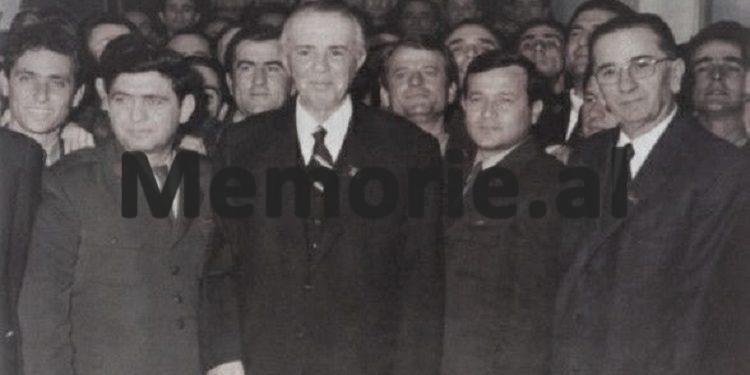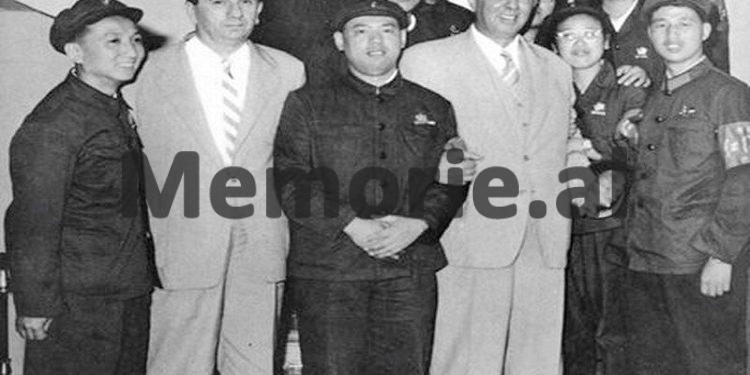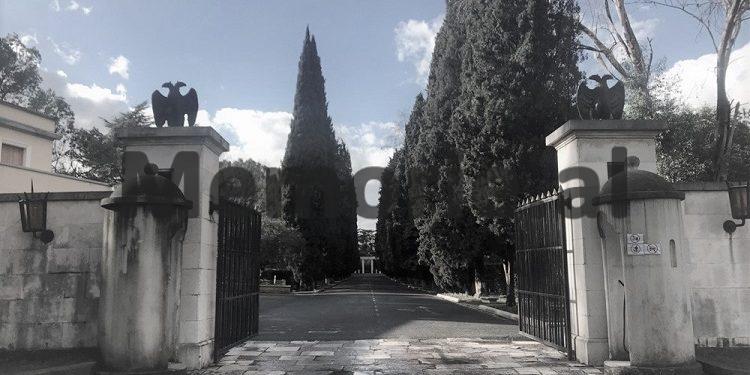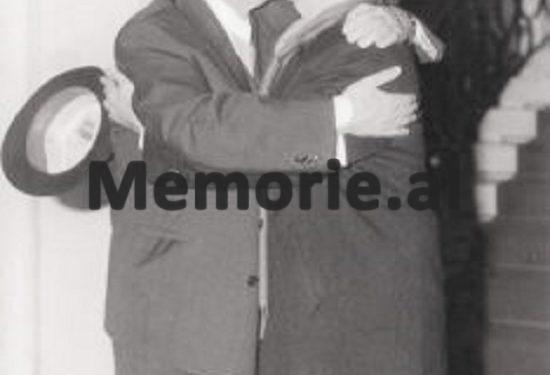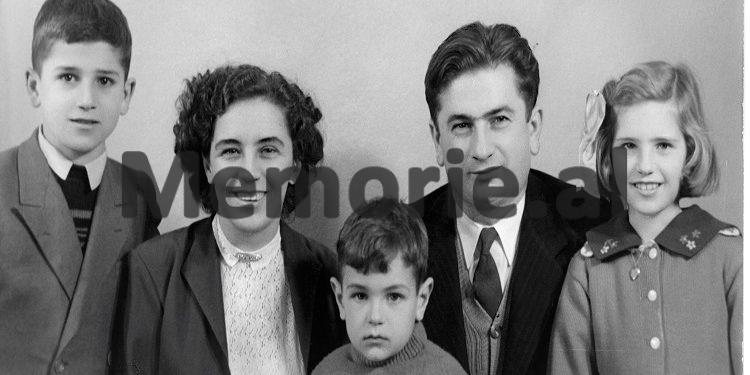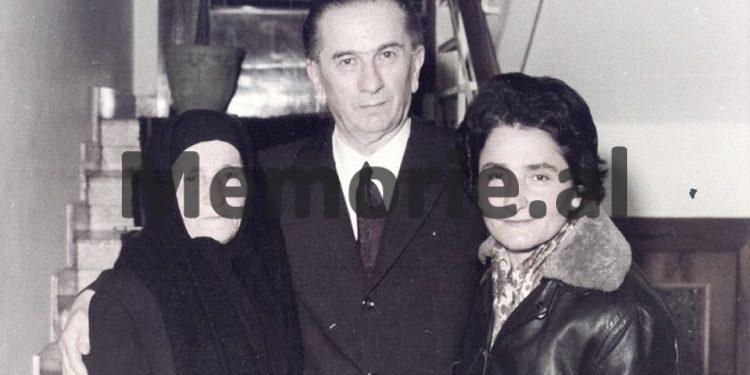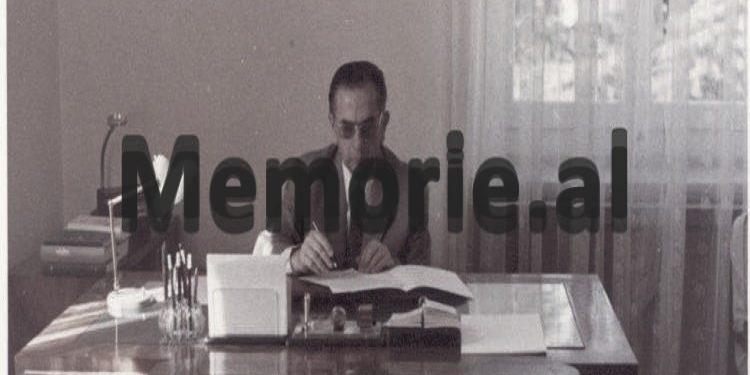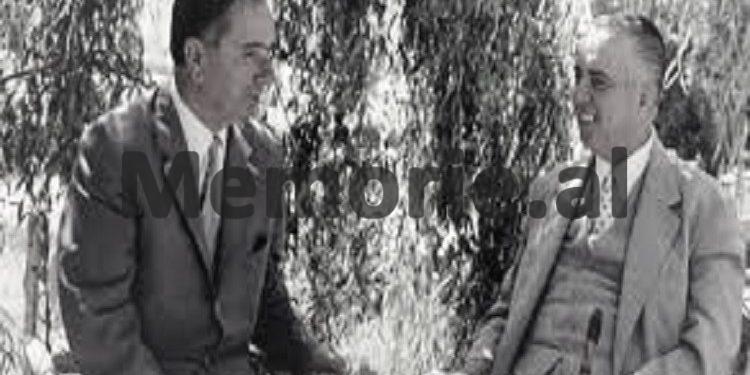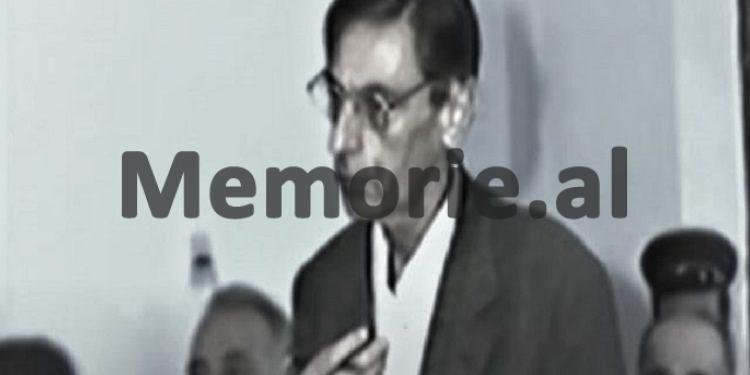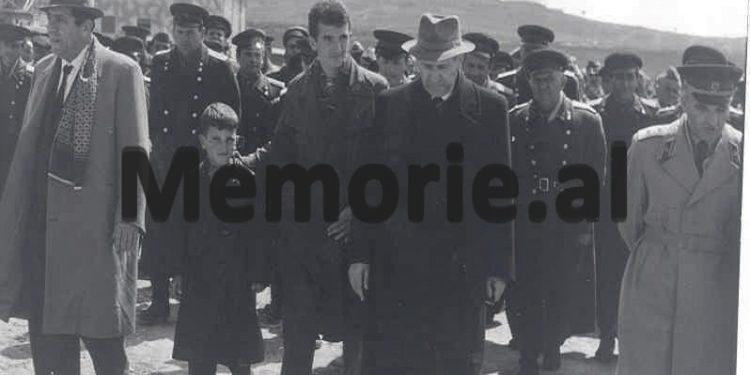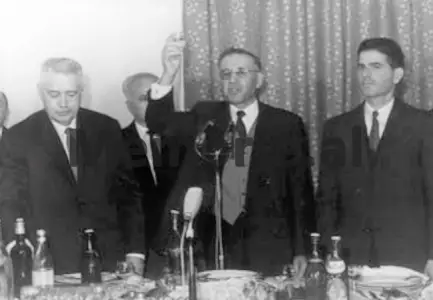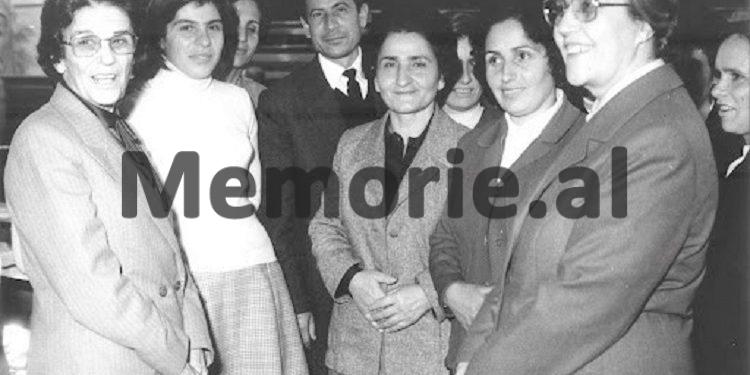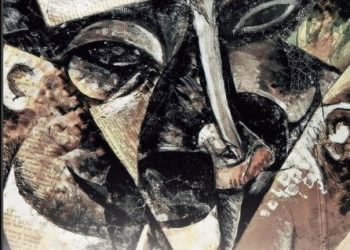By Bashkim Trenova
Part forty-two
Memorie.al publishes the memoirs of the well-known journalist, publicist, translator, researcher, writer, playwright and diplomat, Bashkim Trenova, who after graduating from the Faculty of History and Philology of the State University of Tirana, in 1966 was appointed a journalist at Radio- Tirana in its Foreign Directorate, where he worked until 1975, when he was appointed journalist and head of the foreign editorial office of the newspaper ‘Zeri i Popullit’, a body of the Central Committee of the ALP. In the years 1984-1990, he served as chairman of the Publishing Branch in the General Directorate of State Archives and after the first free elections in Albania, in March 1991, he was appointed to the newspaper ‘Rilindja Demokratike’, initially as deputy / editor-in-chief and then its editor-in-chief, until 1994, when he was appointed to the Ministry of Foreign Affairs. with the position of Press Director and spokesperson of that ministry. In 1997, Trenova was appointed Ambassador of Albania to the Kingdom of Belgium and to the Grand Duchy of Luxembourg. Unknown memories of Mr. Trenova, starting from the war period, his childhood, college years, professional career as a journalist and researcher at Radio Tirana, the newspaper ‘People’s Voice’ and the Central State Archive, where he served until the fall of the communist regime of Enver Hoxha, a period of time when he in different circumstances met many of his colleagues, suckers of some of the ‘reactionary families’, etc., whom he described with a rare skill in a book of memoirs published in 2012, entitled ‘Enemies of the people’ and now brings them to the readers of Memorie.al
Continued from the previous issue
WITH “HEROES OF THE PEOPLE”
POLITICAL BUREAU AND THE PRESIDENCY
The military exercise “Biza”, with the crazy march that exhausted us all and the speech of Prime Minister Mehmet Shehu when we arrived in Vidhkuq!
Due to Mehmet Shehu’s threats, many employees of Radio Television risked losing their jobs. It was also proposed to them that they be no longer reserve officers. A friend of mine, Hysni Lita, with whom we had once worked together on Foreign Radio, risked going to military trial. Hysniu was a reserve officer as well as me and all the employees who had graduated from university. I had been fired several times for military training and long marches of several days with him and the reserve troops we commanded. He was exemplary. Even more diligent than a career officer. He was extremely careful, always ready to help the reserve soldiers of his unit. I saw him holding them on his back to cross a river. He always stood by them. Now he had to appear before the military court because the “Biza” exercise, not through his fault, was conceived with carelessness and professional ignorance by the Ministry of Defense.
I do not know how the events unfolded, whether the employees of Radio Television were convicted or not. However, I know that Hysni did not go to the Military Court. I went to his house to congratulate him. In his apartment a room was full of chairs that were waiting for Hysni’s friends and colleagues to wish him that he escaped a completely undeserved punishment, which he would have followed later in his whole life. It was like a wedding atmosphere. Why? Because he was not punished by those who deserved the punishment.
“Biza”, in fact, was not an isolated or accidental case. I do not remember a single case, a similar training that did not end as “Biza”. I remember quite well the march of hundreds of people, if not more, soldiers and reserve officers of the 1st Brigade, describing the route Vaqar of Tirana – Vithkuq of Korça. This is where this Brigade was created during the War years. We walked hundreds of miles on foot, without eating or drinking, to the tops of mountains and trails where no human had stepped. Mehmet Shehu had ordered this march to break the record of the march of the armies of bourgeois and revisionist countries, as the communist countries of the former Soviet bloc were called. We were required to be declared world champions of the military march!
Indeed, we became champions of exhaustion, of a total crush. In wartime, in this state, we would not have been able either to take a step, maintaining its normal rhythm, or to breathe normally, or to score, and no longer to face and win over the enemy. Our hands and whole body trembled, shook and stood not to rejoice imaginary victory over the enemy, but to prove that we had not yet ended, we were still alive.
How did we escape death in the crazy march of the 1st Assault Brigade, from Vaqarri to Vidhkuq of Korça?
In this crazy march we were crushed as in all other marches. On one side of the road, Andon Dede, a friend of mine on Radio Television, could no longer walk. His leg was almost paralyzed. The comrades of his company were scattered in the mountains, as were those of the company I was to command. I could not abandon him. We continued to walk together in the dark without knowing where we were and in what direction we were going. We were just careful not to lose sight of anyone, whoever he was, but who was a few meters in front of us. We thus tried not to lose touch with the Brigade, not for the sake of the military duty entrusted to us. It was our instinct that issued the command to survive at any cost and in any circumstance. So we came to the top of the mountain more like ghosts than humans. We wanted to stretch a little to gain strength. After staying there for a few minutes we decided to continue the way. A cold wind was blowing at the top of the mountain. We could not stay there. A dominant hearth formed in my brain that commanded me to search and find an abandoned shepherd hut where we could rest somehow, perhaps spend the night. For the first time in my life I started seeing mirages.
It was as if I saw a hut somewhere near us, in the dark. As this scene began to be repeated to me often, so as not to drag Andon with me in vain, I told him to stay, to wait for me where we were. I myself followed the path to the distance where the dreamed hut had to be found with my eyes open, to the point where I would be disappointed once again. We finally decided to spend the night, or a few hours, in an irrigation canal we encountered along the way. We both got into a water pipe. After a while we got up and continued on our way again. I do not remember which of us thought that we could fall asleep there and that the villagers could also release water for irrigation. In such a case, crushed or dead, we risked drowning, that is, really dying.
The ART operator, Bujar Kore, threatened to kill the officer who provoked him!
We finally arrived in Vithkuq. Mehmet Shehu also came after us. We lined up this time as well as in the “Biza” exercise. Mehmet delivered one of those usual fiery speeches, referring to an idiotic heroism and patriotism, which he probably thought would increase his glory, his cult. It seemed that everything was done just to give him the opportunity to show a great patriot, a soldier and strategist of unknown calibers, a tyrant who was covered by the shadow of a super tyrant, but who had no less “value” se ai. After Mehmet Shehu’s speech, we took the road back to Tirana.
Several decades have passed since then and I do not forget the words of Bujar (Kores?), A young boy, operator of the Albanian Radio Television. A career officer asked him how he felt now that we were returning. The answer was: “If we were in time of war, you would be the first to be killed by me”! The poor officer was just as responsible as the rest of us. Generosity is not that he did not know this. Maybe his words were words of despair, maybe they knocked on the ordinary officer, but their address was elsewhere, much higher! I met him by chance a few years ago. He worked as an operator in a private television in Tirana, at “Piramida”. He offered me a coffee while I was waiting to meet Filip Çakulli, my former colleague in “Democratic Renaissance”.
My meeting with Mehmet Shehu and Fiqret, at the House of Hysni Kapos!
I met Mehmet Shehu and Fiqrete Shehu even after that. I have mentioned, writing several lines about my childhood, also about a meeting that took place in the school “Kongresi i Lushnjes” between Fiqrete Shehu and the voters of the area where her candidacy was presented. It was there that I saw Fiqrete Shehu for the first time. The next “meeting” with him is somewhat more personalized. Actually it is my mother who has met him for me. Surely this would have happened on the anniversary of some marked event of the War. The mother repeated to Fiqreta, the request she had made before, without result, to Nexhmije Hoxha, the dictator’s wife. My mother told her to intervene and make possible a trip of a few days abroad for me. I do not know whether Fiqerete Shehu intervened or not. In fact, after this conversation, I was assigned to accompany as a journalist the State Ensemble of Folk Songs and Dances, which would make a one-month tour in France. The coincidence between the talk time and that of the Ensemble tour can be a mere coincidence! The mother did not have any other meeting with Fiqreten. The events will unfold very quickly and the Shehu family would disappear from the official protocol, and would even disappear altogether in a more tragic way.
My real meeting with Fiqreta and her husband, the Prime Minister of the country, Mehmet Shehu, took place at the house of Hysni Kapos, one of the most important members of the Albanian communist leadership. Together with two or three other friends of the collegium of “Voice of the People”, a body of the Central Committee of the Party, we had visited the house of Hysni Kapos on the occasion of the anniversary of his death. We were received by Hysni’s wife, Vito Kapo. Hysni Kapon, also this ‘People’s Hero’, I did not have the opportunity to meet him. I remember that he named me “Bashkim” in Sevaster, Vlora, where I was born. Thoughts or opinions about Hysni Kapo are from the most diverse, from the most extreme. There are among them who value him as a man sensitive to the troubles of the people of the people. I know that my sister, Engjëllushja, wrote him a letter in which she introduced herself as the sister of “Bashkimi”, whom he had named so during the difficult years of the War. The sister lived for several years alone with her three young daughters in Tirana. Her military husband was appointed commander of the Lushnja Brigade and lived in Lushnja. Only on weekends did he return home. The sister asked Hysni Kapos to help her, to make it possible for her husband to return to the children. Hysni Kapo returned him to Tirana, where he was appointed lecturer at the “Mehmet Shehu” Military Academy. In the communist style she could have acted differently, transferring my sister with her three daughters to her husband, in Lushnje, or, as was repeated in such cases, “where the Homeland needs.”
Vito Kapo returned my mother to work in Tirana, after she was removed from the position of chief of staff at the Consumer Cooperative!
I had also never met Vito Kapo before this visit. I had followed her in the news reports. As President of the Albanian Woman, she represented this organization in various congresses in the outside world. Vito to attract attention with her behavior of a delicate female, with her simple but tasteful dress. She always carried a beautiful bag in her hands. No other Bloc woman resembled her in this look. Vito Kapon I also remember for a decision of hers related to my mother. They had been comrades in war. Years had passed and the mother worked as a staff manager in Consumer Cooperatives. From there she was fired and sent out of Tirana, as the manager of a small pastry and jam factory, where no more than three or four workers worked. The mother did not complain anywhere about her leaving Tirana. Maybe one of her friends had told Vito Kapos how they had treated their mother. It was her intervention that brought her back to the position of chief of staff in Tirana.
From the Kapo family I also have a memory during the days that happened in Paris with the State Ensemble of Songs and Dances. One of these days I was called to the Albanian Embassy to have a telephone conversation with the editor-in-chief of “Zeri të Popullit”, Agim Popa. He asked me for the Ensemble’s concerts in France to be reflected more enthusiastically. I should have written not simply that our Ensemble was successful, which was true, but that it was astonishing France and that such an art of folklore, nowhere to be found, flourished only in socialist Albania, only thanks to the Party of Labor and Comrade Enver Hoxha. After the telephone conversation with Tirana, I spoke a little with the Albanian ambassador in Paris, Misto Treska. He, after laughing lightly, said to me: “Add water Bashkim”. The phone call to Tirana, which took place while the troupe was eating lunch in a Paris restaurant, left me without lunch. The case that Besnik Kapo, the son of Hysni Kapo and Vito Kapo, is coming to the embassy in the meantime, seems to me a student in Paris. He insisted and took me to a Parisian snack, where he offered me something to eat. We did not know him before.
Enver’s unknown speech, about the suspicions of the Kapo family, about the death of Hysni!
On the anniversary of the death of Hysni Kapos, next to his wife Vitos and Mehmet Shehu, I could not help but think of some words that had made his death somewhat mysterious, which had raised doubts about a possible elimination of him from Enver Hoxha or by Mehmet Shehu, or both together. It was rumored that Mehmeti saw him as a potential rival for the post of First Secretary of the Central Committee of the Party after the death of Enver Hoxha. The suspicions were so strong and, perhaps so close to the truth, that Enver Hoxha himself was forced to express himself. He did this only after the eliminations of Mehmet Shehu. “It has spread all over Albania”, said Enver Hoxha, “as if comrade Hysni did not die of cancer, but they killed him by order of Mehmet Shehu and with this they try to make Hysni Kapo a martyr of Mehmet Shehu’s hostile activity …! Who opens these words? There are also members of Hysni’s family, who have had doubts in this matter and have expressed these, but we have fought them, they have expressed them again, but there are also cousins among them, there are also enemies who seek to create difficulties for the Party. What do we do about it? Let me give you a special speech, where can I say that comrade Hysni Kapo is not true that he was killed, but he died of cancer? No, I do not do this, but I protect comrade Hysni Kapo, for the great merits he had, for the great services he rendered to the Party, but who died of cancer, confirmed by the doctors …”!
Enver Hoxha, who has not left without talking about poultry and kindergartens, the fate of the world and the world proletarian revolution, cannot speak about the murder of Hysni Kapos! Why? If we are really dealing with a murder or physical elimination of Hysni Kapos by Mehmet Shehu, the latter could not have committed this crime without the order and approval of Enver Hoxha. Mehmeti is defended here, to protect what is behind him in this crime. What interests Enver Hoxha, as it appears from the phrases quoted by him, is not the whitening of the truth, but the closing of the mouth of the public and the beloved people of Hysni Kapos. Enver Hoxha warns that if he acts differently from what he orders, they will line up next to the enemy, who seeks to create difficulties for the Party! It is known, and then what would be their fate…! For Enver Hoxha, the “Kapo Case” had to be closed by throwing some flowers on his glorious and heroic grave!
When you see Mehmet Shehu and his wife sitting next to Vita Kapos on the anniversary of Hysni’s death, whether you like it or not, you also remember that the perpetrator was now next to the victim’s wife. You cannot help but make an involuntary guess, to understand how they felt next to each other, how they played the roles, what masks they used. I have the impression that no one felt good in that meeting, but everyone took care to show closeness and solidarity.
Kadri Hazbiu, at that time a member of the Politburo and Minister of Interior was also in the waiting room at the house of Hysni Kapos, together with us from “Zeri të Popullit” and the Shehu couple. I remember Mehmet Shehu’s arrogant behavior and arrogance towards him, Fiqreta’s careful interventions to balance Mehmet and to soften the effect of his words. I also remember the attitude of Kadri Hazbiu, who looked like a polite student caught in guilt, with his head down and who did not even try to explain himself, because he was afraid he would suffer worse. Simply, the relationship between them was not a relationship of friends. It seemed as if you had before you an all-powerful feudal lord and his wage earner with whom he could act arrogantly as he wished, to the point of complete denigration. It even seems to me that this alone gave Mehmet Shehu pleasure. I believe he was complex and at every moment, in every case he sought to exercise power by provoking beyond measure of patience.
Mehmet Shehu ordered us journalists of “Zeri i Popullit” to do physical work outside Tirana!
After finishing with Kadri Hazbiu, Mehmet Shehu returned from us, the members of the Collegium of the newspaper “Zeri i Popullit”. He liked to interfere in the affairs of the editorial office, to make remarks, assessments, to give orders. The newspaper “Zeri i Popullit” was a body of the Central Committee of the Party and not of the Prime Minister. In the Central Committee, there was also a Press Director, who orientated or censored the Albanian press. Mehmeti if he had something to say, he could communicate with this Director. He called the editor-in-chief of “People’s Voice” directly to make thunder and thunder. I was once present in the editor-in-chief’s office, when he got on the phone to release his lightning bolts, because on one of the pages of the newspaper was published a picture of the Tërkuzë bridge, over which the Tirana-Pogradec train passes. The bridge was in the open air and any passerby, if he wished, could take a picture of it. This was normal. The publication by “Zeri i Popullit” of the photo of this bridge was abnormal for the Prime Minister Shehu, even, according to him, “Zeri i Popullit”, had published the photo of a strategic object, practically had given it to the enemy! “Zeri i popullit”, in fact, had published this photo to show the greatness of the works, which were built in socialist Albania under the leadership of the Party.
At Hysni Kapos’s house he became interested in the newspaper again. He did not talk about its level and the problems that the editorial office faced. He was interested in where the journalists did their physical work. The employees of the newspaper, like all Albanian employees, in order not to be bureaucratized, as the Party said, worked one month a year as unskilled workers in a factory or in an agricultural cooperative. Journalists and members of the “Voice of the People” Collegium did manual labor or production work, as it was called, in a factory or factory in the capital. This solution was found in order to give them the opportunity to go to the newsroom in the afternoon, to write and submit for publication the planned articles as usual. As soon as he learned of this practice, Mehmet Shehu was embarrassed. “No, not in Tirana!” He said. According to him, journalists, to do production work, had to go to the most remote areas of Albania. Immediately after we returned to the editorial office, Asim Bedalli, who seems to me to be the deputy editor-in-chief of “Zeri të Popullit” at the time, convened a meeting of the Party organization to implement the orders of Comrade Mehmet Shehu. No one discussed the difficulties created for the newspaper by the sudden removal of several journalists from the editorial office. Not that we were unaware of this, but that no one dared to be logical in the face of madness. As Fejzi Hoxha, one of the doctors of the leadership of the Labor Party, said: “In Mehmeti, enter as a doctor and leave as a patient”.
It seems to me that, if we make a comparison between the spiritual father of the dictatorship and the executioner in his service, that is, between Enver Hoxha and Mehmet Shehu, we will notice a difference, although perhaps not essential. Enver knew how to play the angel and the stately, the tearful and the generous, but also the fanatical principled, the leader who lives only to defend the principle even if the world is sought to collapse. Mehmeti was a role player. Throughout his life he has played only one role, that of himself, wicked and dark in spirit, an ambitious criminal. According to doctors, in 1958, Mehmet developed photophobia. He was terrified of the lighting. Enver, unlike him, liked the spotlights, the cameras. Like Mehmet, he feared, however, the light in the sense of illuminating the truth. Mehmeti also covered his head with a blanket to eliminate the light. Enver, no less than him, liked the darkness. He was the master of the dark backdrops, to cut off his head so that the truth would not come to light.
My last “meeting” with the Prime Minister, Mehmet Shehu!
My last “meeting” with Mehmet Shehu was, I do not remember well, in the hall of the People’s Assembly or in the hall of the High Institute of Arts, the former Opera Theater. I was there invited along with some intellectuals and cadres of the Party, to listen to the recorded meeting of the Politburo, where Mehmet Shehu was crucified and Enver Hoxha’s speech after his assassination or suicide. It was another Mehmet Shehu. You no longer had a falcon in front of you, as it had presented until a few months ago, but a wet, featherless chicken. His voice came out weak. In a way it was unfortunate. You no longer find any trace of bravery or manliness with which he was proud until then, with or without right. The “Pulkat” of the Politburo, by order of the General Commander, Enver Hoxha, had turned into hawks and hyenas hungry for carrion. It seemed like everyone was in a race to be as idiotic as possible. With absurd questions to which, consequently, you could not even answer, they stuck it. Before his name all the incontinent trembled only a few months ago.
Kadri Hazbiu’s response, when the President of the Court accused him of wanting to kill Enver!
Mehmeti was declared by Enver Hoxha: “enemy, agent and political agent”. He also forced Fiqerete Shehu, imprisoned after the elimination of her husband, to give as evidence the same accusations that he himself made against Mehmet Shehu. Thus, Fiqrete Shehu, in her testimonies, “discovered” the same thing that Enver Hoxha had “discovered” and stated before. According to him, Mehmet Shehu was “the chairman of the counter-revolutionary conspiracy and coup organization that was put in the service of foreign agencies and aimed at his physical elimination and the overthrow of the dictatorship of the proletariat.” Mehmet Shehu’s closest aide, according to Enver Hoxha and Fiqrete Shehu, who repeated Enver’s statements, was Kadri Hazbiu. In a Plenum of the Central Committee of the Party, Enver Hoxha had told him: “I will give an order to arrest”!
The issuance of this kind of order by the emperor has been filmed and circulated on the Internet. Enver arrested and executed Kadri Hazbiu and many others after him. It is interesting to follow the position of Kadri Hazbi before the court, which accused and sentenced him to death, as an enemy who had wanted to kill Enver. When the President of the Court told him that he had brought a gang from outside Albania to kill Enver Hoxha, Kadriu replied: “I kill 500 like you and I do not give a hand to Enver Hoxha. On the contrary, I wipe out the entire world for that man “I love him so much.” Did he think that this would soften the dictator and save his life? Maybe! He may have told the truth. I belonged to the Party, I belong to the Party and I will die for the Party “. These were the last words of Kadri Hazbiu, when he was informed of the death sentence, according to the decision given by Enver Hoxha. Memorie.al
The next issue follows




